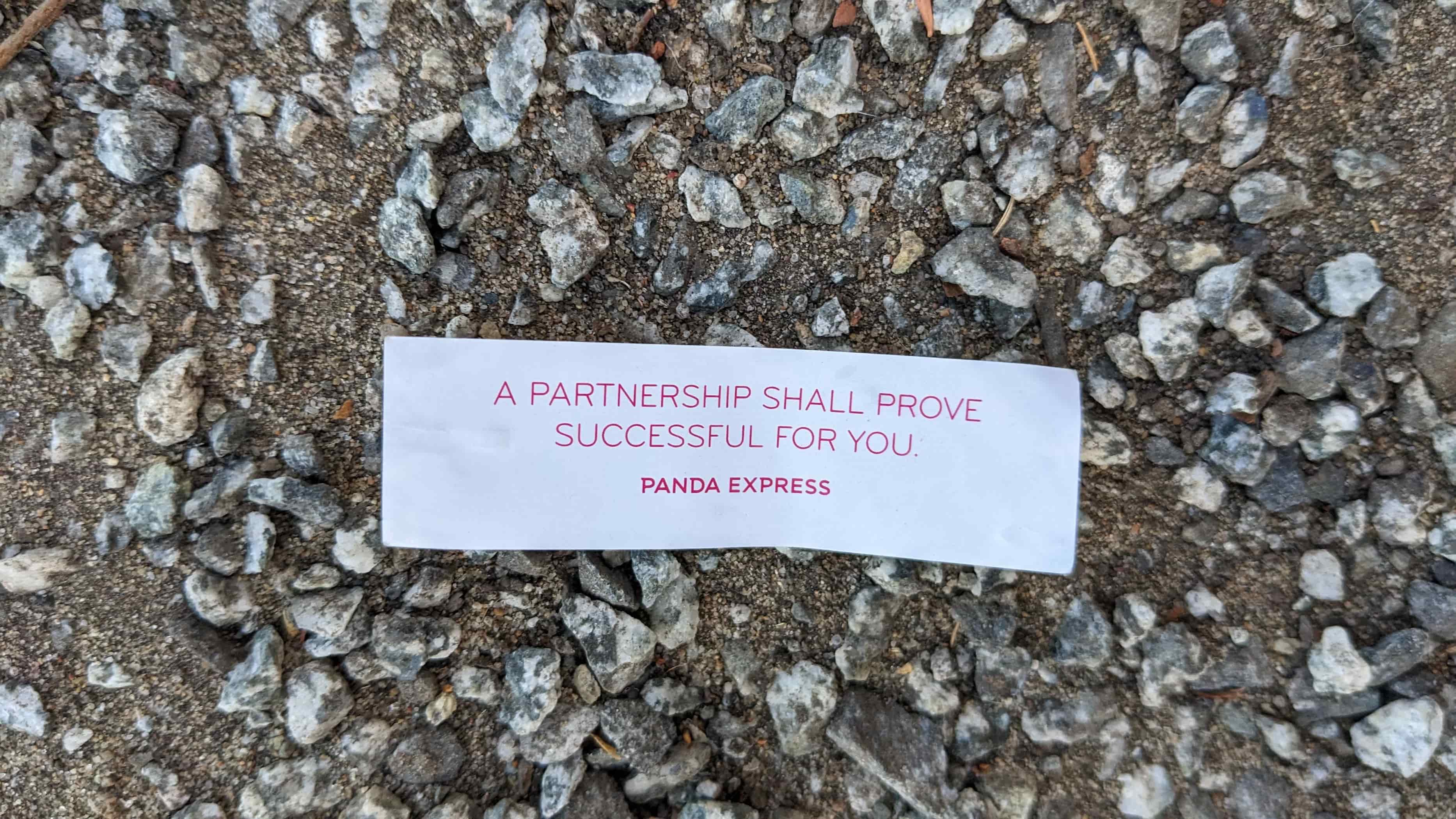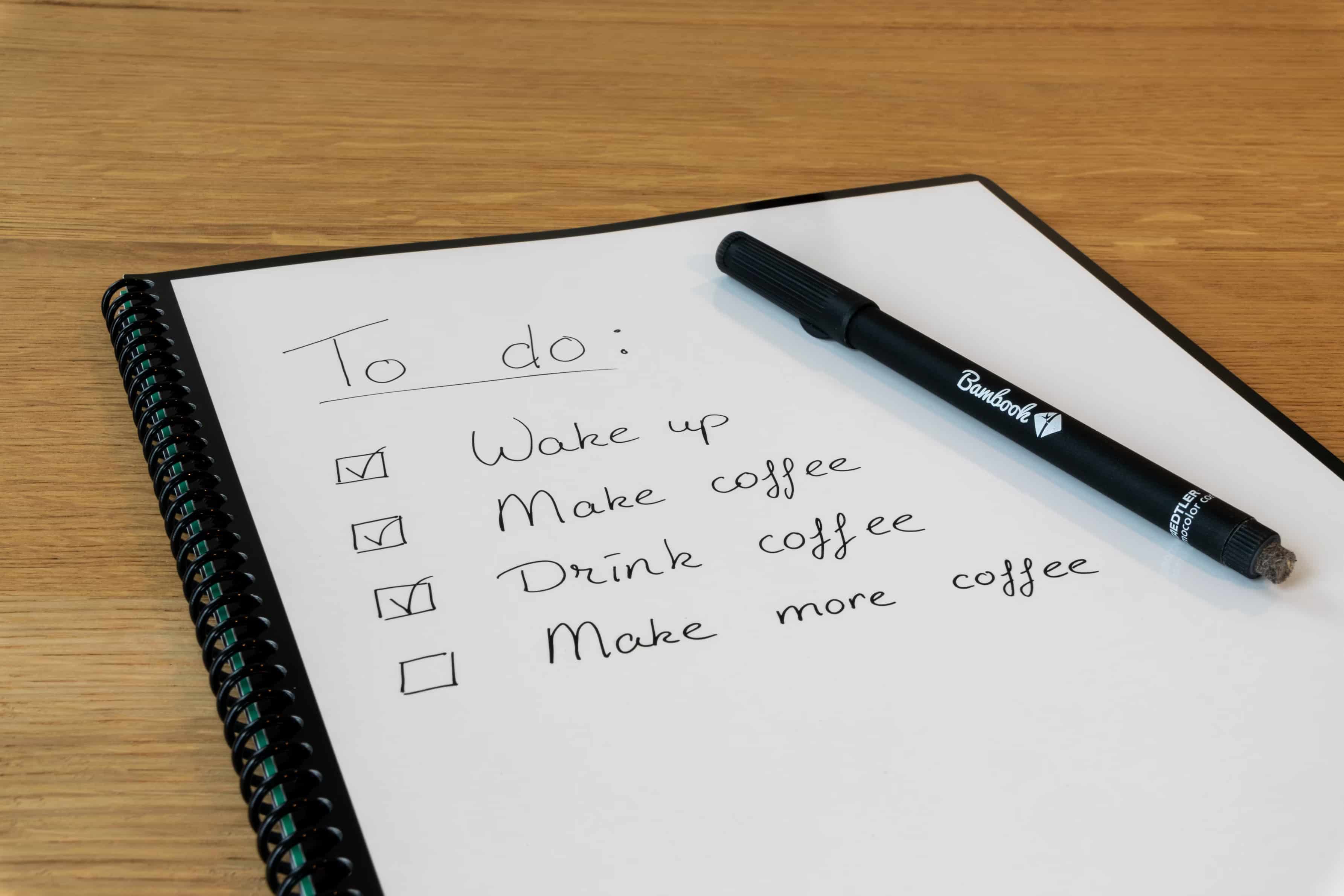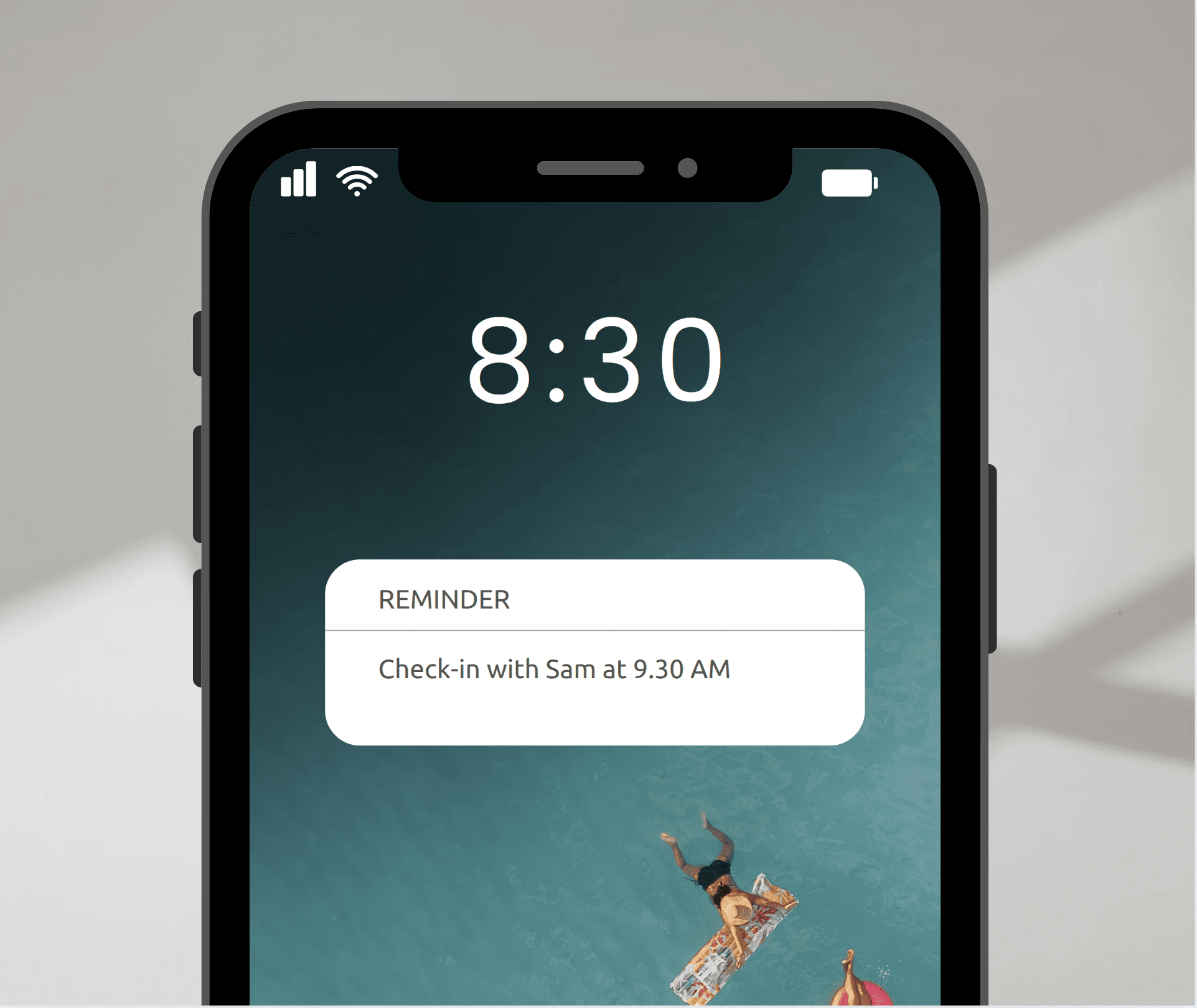Accountability Partner Checklist: Ace Your Partnership and Actually Get Stuff Done
Use this simple checklist to find the right accountability partner and actually follow through.
At Boss as a Service, when we start working with a new user, one of the first thing we ask is what kind of accountability they're looking for.
Sometimes people have a broad sense. They want to follow through, stay focused, maybe finally finish that one thing they keep moving to next week’s to-do list. But often, it’s still a bit fuzzy. And that’s okay! After all, most of us weren’t exactly taught how to partner with someone for accountability. We just know we need accountability.
So, I made a checklist.
Whether you're searching for a specific accountability partner or trying to gauge whether you should continue working with your current accountability partner, this should give you a clearer picture. And hopefully save you a few months of “Let me try harder next week.”

What Is an Accountability Partner?
If you’re new here, here's a quick introduction to accountability partners.
An accountability partner is someone who helps you follow through on your goals, not just by cheering you on, but by noticing when you quietly abandon ship and pretending not to.
Ideally, they understand the usual suspects: procrastination, perfectionism, fear of failure, or just that special ability to make a spreadsheet and then never open it again. But instead of judging, they help you work through it. Nudge you back on track. Remind you that you said this mattered.
An accountability partner can be anyone you trust to keep an eye on you. A friend, a coworker, a partner, or even a professional accountability coach. But no matter who you choose, there are a few things they need to bring to the table.
(Otherwise you’ll both end up procrastinating. Together. Which is fun, but not exactly the point. Also, one of our clients calls this a Bro-crastinator, which is too perfect not to mention. f/t Tom!)
Checklist of Accountability Partner Qualities
1. Compatibility
Think of it like finding a flatmate. You don’t have to be best friends or soulmates, but you do need someone you can stand to share space with — someone who won’t eat your snacks at least.
An accountability partnership isn’t all that different. You’re trusting this person with your goals, your bad habits, and the weird mental spirals that derail your progress. It helps if you’re on the same wavelength, or at least in the same frequency band.
You don’t need to be identical in style or personality. But the partnership works best when you get along well enough to keep showing up, week after week, without quietly dreading each other’s existence.

2. Positive Attitude (Supportive, Not Soul-Crushing)
It’s hard enough trying to stay on track without someone hovering nearby, pointing out everything that’s going wrong. Personally, I find it infinitely easier to stay motivated when I’m working with someone who remembers what is working, someone who can spot the small wins and bring them up when I forget -- than one who can't think beyond the failures and missteps.
So when you’re choosing an accountability partner, look for someone who’s encouraging, not exhausting. Someone with a growth mindset. Someone who can say, “Okay, this week didn’t go to plan. What next?” instead of spiraling.
The ideal accountability partner doesn’t have to be a cheerleader. Just someone who reminds you that progress isn’t ruined every time you have a bad Tuesday.
3. Clear, Straightforward Communication
You don’t need someone who speaks in riddles. You need someone who can tell you, clearly and calmly, that you’re off track, and what you might want to do about it.
Good communication doesn’t mean constant check-ins. It means being able to understand each other without too much guesswork. If your partner gives great advice but wraps it in five layers of metaphor, it’s probably not going to help you mid-deadline spiral.
Figure out what kind of communicator you work best with:
Do you want a chatty, check-in-every-day type? Or someone who shows up once a week with big-picture feedback and lets you be?
Either is fine, there's nothing wrong with either style. But it helps to know that up front — before one of you starts writing essays and the other responds with a single “👍.”
4. Similar Goals (Or at Least Similar Energy)
If your accountability setup is a two-way street, where you’re both keeping each other on track, it helps to be working toward something vaguely in the same category. Not necessarily identical goals, just goals that make sense side by side.
If you’re trying to lose weight by exercising and controlling your diet, and your partner’s trying to scale their startup to $10 million, the check-ins might start to feel mismatched. You can still make it work, but you’ll likely feel more motivated if you’re both talking about similar things (workouts, meal plans, daily steps) instead of swapping gym updates for pitch decks.
That said, finding someone with similar goals isn’t always easy. A good place to start is online communities, forums, or courses related to whatever you're working on. At the very least, you’ll meet people who understand why you’re trying to do this in the first place.

5. Reliability (aka: actually showing up)
Accountability only works if both of you show up. Consistency is key in maintaining accountability and making progress on your goals.
If your partner keeps rescheduling calls, ghosting check-ins, or disappearing mid-week, the whole system starts to wobble. Not just because it’s frustrating, but because consistency is kind of the whole point.
You need someone who sticks to the schedule you’ve agreed on — or at the very least, is honest when they can’t. If you’re putting in the effort to stay on track, it helps to know the other person is showing up for it too.
6. Honest (but actually helpful) Feedback
Yes, encouragement is important. But if your accountability partner agrees with everything you say and never points out when you’re clearly spiraling, they’re not helping. Along with a positive mindset, honest and constructive feedback is also crucial.
The right accountability buddy should not just be a "yes" person--providing constructive criticism makes all the difference in helping people improve, and letting them know when things are not working and you need to change their approach or adjust their goals.
The goal isn’t brutal honesty. It’s useful honesty. Someone who can say, “This doesn’t seem to be working. What’s the plan now?” without making you feel like a failure. Constructive criticism is what keeps the partnership useful instead of just polite.
You’re not looking for a cheerleader. What you need is someone who helps you get unstuck.
7. Productivity Hacks
Your accountability partner doesn’t have to be a productivity guru. But it helps if they know a few useful tools, and when to pull them out.
Struggling to get started in the morning? A quick check-in might be enough to push you into motion. Avoiding a big task for the third day in a row? They might nudge you to Eat the Frog and get it over with. Maybe even suggest a few systems that could help, like Success Spirals or monk mode mornings. depending on how intense you’re feeling.
The point is: a good partner doesn’t just hold you accountable. They offer ways to make doing the work slightly less painful.
Checklist to Build a Successful Accountability Partnership
Set Clear Expectations and Roles
Once you’ve found someone you’re ready to work with (the best accountability partner, you're sure!), have an actual conversation about how this is going to go. Nothing fancy — just enough to make sure you’re not silently operating on two completely different ideas of what “accountability” means.
Figure out things like:
- How do you want to be held accountable? (Gentle nudges? Blunt reminders?)
- What kind of feedback actually works for you?
- How often will you check in, and how flexible is that?
It’s important to make sure neither of you ends up frustrated, confused, or quietly ghosting each other by week two.

Focus on Communication and Active Listening
This one’s simple: say what you need, respond when they do, and don’t disappear.
Let your partner know what kind of communication works for you (direct? friendly?) And try to match the energy you’d like to receive. If they message you to check in, don’t leave it unread until bedtime. And don’t wait for them to ask; send updates as you go.
Also: when they talk, listen. Not just “nod while waiting to speak” listen, actually take it in. Active listening sounds obvious, but it’s surprisingly rare. It’s what turns a series of check-ins into something that actually helps.
Motivate and Support
It’s easy for check-ins to turn into a dull list of what got done, what didn’t, and what’s still haunting your to-do list. And that's not exactly the kind of thing that gets you out of bed in the morning.
So mix it up. Share small wins. Remind each other why the goal matters in the first place. Offer perspective when things go sideways, and take a moment to point out what’s working, not just what’s left.
Constant motivation and support are necessary to stay on track for your goals. Include positive affirmations, reminders to seize the day, and what can be learned from all the successes and challenges so far as you move forward.
Create a Check-In Schedule
Speaking of check-ins, regular meetings and messages would help ensure you stay motivated and focused on your goals. A good schedule includes two meetings a week, along with check-ins via messages or e-mails once a day or every other day, as required. Of course, you can customize your schedule based on your requirements, but ensure that your partner is on the same page and sticks to the plan as much as possible.

Keep Feedback Constructive
As you make progress on your goals, your partner may notice some points of change or improvement. They should be able to highlight these honestly and constructively to help you tweak what is needed without getting discouraged. Make it a rule to discuss these points with positivity.
Celebrate Wins and Progress
Make sure that every milestone crossed is acknowledged and celebrated, not matter how small it seems compared to the long journey ahead and the bigger rewards waiting for you at the finish line. The harder you work, the more you're likely to lose steam, so these little pops of celebration will go a long way in helping you trudge along.

Keep Up the Challenge - Don't get Stuck in a Rut
The longer you work with the same accountability partner, the easier it is to slip into a rhythm. Same goals, same check-ins, same polite nods. Comfort isn’t bad, but it can quietly turn into a rut if you’re not paying attention.
Make space for new challenges. If your work goals are moving along nicely, try adding something different — a habit you’ve been avoiding, a personal goal that feels slightly out of reach. Shake things up now and then. Progress tends to stall when the system gets too predictable.
Iterate the Partnership
Every so often, take a step back and ask: is this still working?
Are the check-ins helpful? Is the structure still doing its job? Is anything starting to feel like a chore? Talk about it. Tweak what needs tweaking.
And if you ever reach a point where the partnership’s done what it needed to do, and you’re both ready to move on, that’s okay too. Wrap it up with gratitude, not guilt. Not everything needs to last forever to be valuable.
Accountability, Minus the Guesswork
Finding (and keeping) the right accountability partner can feel like a project in itself.
Good news: you don’t have to start from scratch.
At Boss as a Service, our human Bosses tick all the boxes — regular check-ins, honest feedback, helpful nudges, and just the right amount of pressure to keep you moving. We work with you on your goals, your habits, and the things you keep saying you’ll “get to soon.”
So if you’re ready to stop comparing checklists and start finishing things, we’re here.

Final Thoughts
The right accountability partner doesn’t just keep you on track, they keep you going when your own motivation runs out. Support, structure, a bit of outside perspective, it all adds up.
If you’ve made it through this checklist, you’re already closer to building a partnership that actually works. One that helps you follow through, not just plan better.
Curious about how accountability systems work in practice? Read some more about it here: